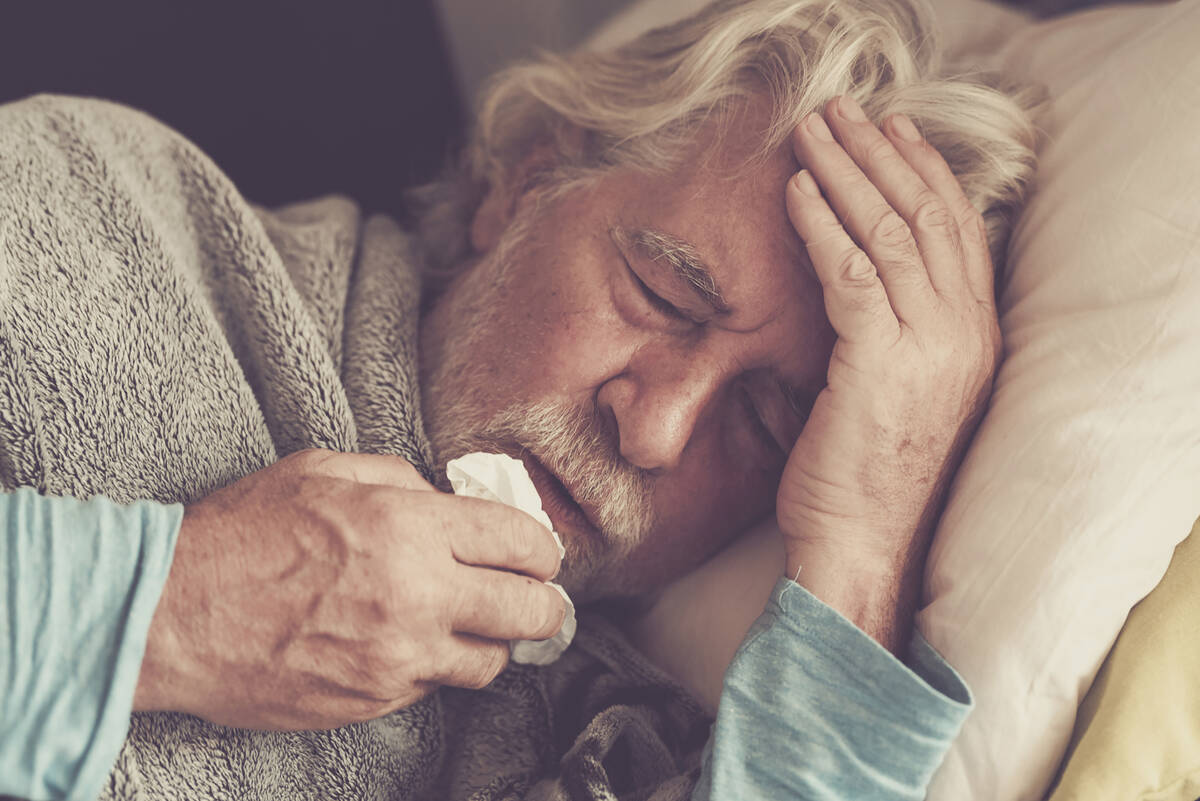How pneumonia infections happen and who’s most at risk
A lot of people think of pneumonia as a case of a cold gone haywire, but there is so much more to the disease than that. And knowing exactly what pneumonia is can help you protect yourself and the people you love.
“Pneumonia is caused by a bacterial, viral or fungal infection,” says Dr. MeiLan Han, spokesperson for the American Lung Association. “It can cause damage to the thin lining of our lungs. Our lungs actually harbor healthy bugs — pneumonia happens when unhealthy bugs get inside and take over.”
How does pneumonia happen?
Pneumonia may indeed result as a complication of a less severe illness like the flu, if that flu hangs on without getting better. How do you know if you have developed pneumonia? According to the Mayo Clinic, symptoms to watch out for include:
— Chest pain when breathing or coughing.
— Cough, often with phlegm.
— Feeling tired.
— Spiking a fever, sweats and chills.
— Nausea, vomiting or diarrhea.
— Shortness of breath.
“Coughing up blood or really severe shortness of breath should be even more alarming, and you should seek medical attention if you experience it,” Han says.
Types of infections
When you do seek medical attention, your doctor will try to figure out what type of infection is causing your pneumonia, in order to treat it swiftly and effectively. Here are the different types of infections you may have and how they cause pneumonia:
— Bacteria: Most often, strep will cause pneumonia. You can get it this way on its own or after you’ve had a cold or the flu. It may affect one part (lobe) of the lung — this kind of infection is called lobar pneumonia.
Bacteria-like organisms often cause “walking pneumonia,” which usually isn’t severe enough to require bed rest.
— Fungi: This kind of pneumonia often affects those with weakened immune systems and can be inhaled during exposure to soil or bird droppings.
— Viruses: Cold and flu viruses can cause pneumonia — viral pneumonia is usually pretty mild but can also cause complications if not treated properly.
At risk for pneumonia
Your odds are greater if:
— You’re hospitalized. You may be exposed to bugs more easily.
— If you have asthma, chronic obstructive pulmonary disease or heart disease.
— If you have a weakened immune system from another disease or condition like HIV/AIDS.
— If you smoke, because smoking reduces your body’s ability to fight off infection well.
What complications can arise?
— Sepsis. This is a system-wide infection in which pneumonia bacteria can move through your bloodstream and potentially cause your organs to fail.
— Fluid around your lungs (called a pleural effusion). Pneumonia may cause fluid to build up in the thin space between layers of tissue in your lungs — if this fluid gets infected, it has to be drained through a tube or by surgery.
— A lung abscess, where pus forms in a cavity in the lung, and you need antibiotic treatment or surgery.
How is pneumonia diagnosed?
According to data from Harvard Medical School, your physician will perform a check to see if you are breathing rapidly, then see if there’s a purplish hue in your lips, fingernails or hands. These symptoms can indicate that you have low levels of oxygen in your blood. Your doctor will listen for abnormal sounds from your lungs. “We can’t tell for sure if you have pneumonia until you have a regular X-ray and then often a CT scan,” Han says.
In terms of treatment, “antibiotics are the standard course,” Han continues.
“If you’re hospitalized for severe pneumonia, you’ll basically be given stronger antibiotics than you would be given as an outpatient,” he explains. “It can take six to eight weeks to recover from pneumonia completely, meaning your follow-up chest X-ray will be completely clear. You have to slowly build back up to your normal activity level because pneumonia can really wipe you out, fatigue-wise.”
Preventing pneumonia
Get vaccinated if your doctor recommends it. Currently, a two-vaccine strategy is prescribed: PCV13 (Prevnar) and PPSV23 (Pneumovax) given several months apart. In addition to antibiotics, other treatments for pneumonia include rest, adequate fluid, and supplemental oxygen to raise the level of oxygen in the blood. If you have a cold or bronchitis and your symptoms don’t get better in a week, definitely see your doctor to get evaluated. Take pneumonia seriously — and take action right away.


















